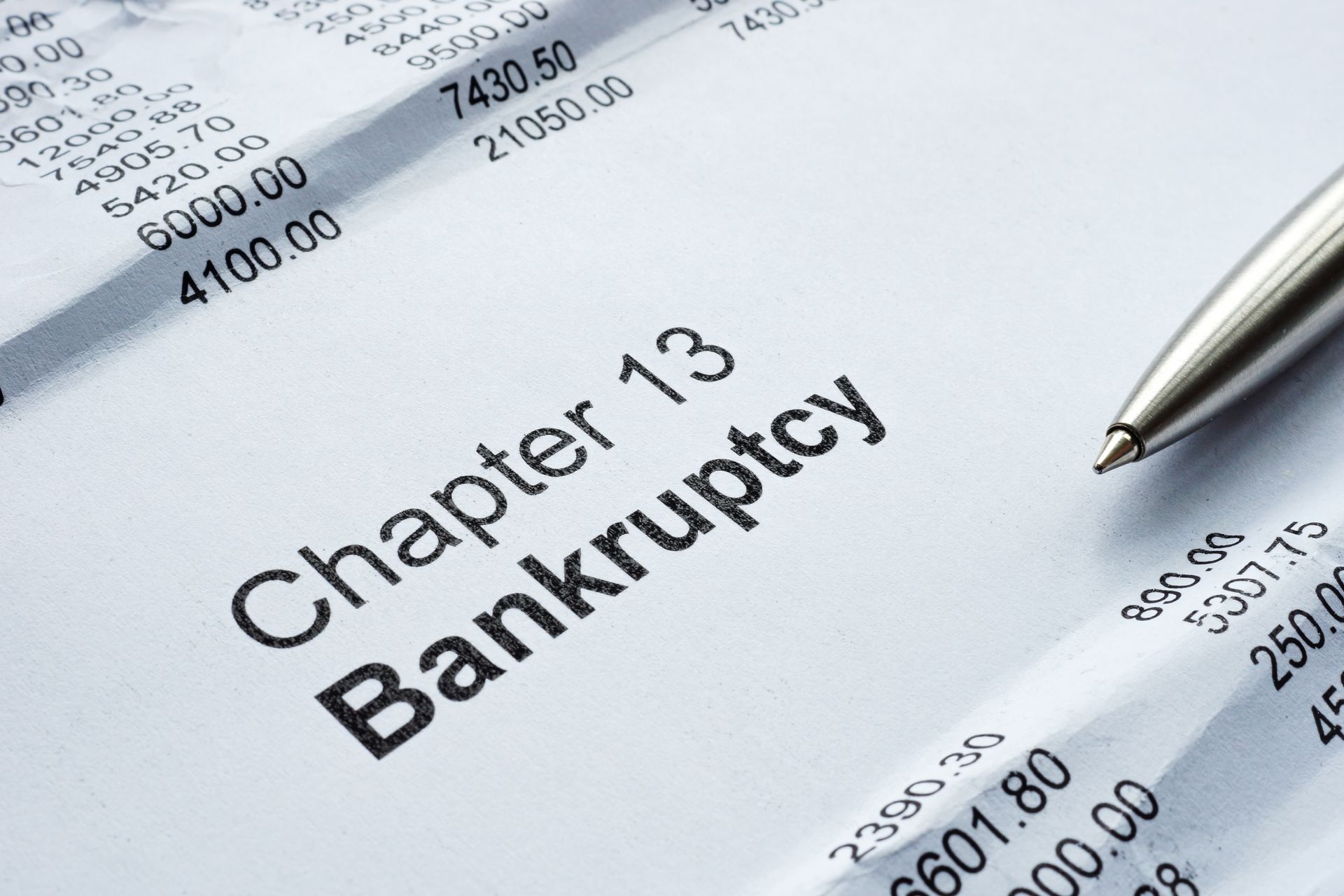Filing Chapter 7 Bankruptcy in New York: Your Guide to a Fresh Start
Filing Chapter 7 Bankruptcy in New York

If you're overwhelmed by debt and considering bankruptcy, filing Chapter 7 bankruptcy in New York may provide the financial relief you need. Chapter 7 is designed for individuals facing significant debt who don’t have the income to pay it off. By liquidating certain non-exempt assets to pay creditors, Chapter 7 bankruptcy allows you to eliminate unsecured debts, including credit card bills, medical expenses, and personal loans, and get a fresh financial start.
At J. Singer Law Group PLLC, we understand that filing for bankruptcy can be a difficult decision. Our experienced attorneys are here to guide you through the Chapter 7 process, answer your questions, and help you regain control of your finances. In this guide, we’ll cover the essentials of filing Chapter 7 bankruptcy in New York, including eligibility requirements, the filing process, and what to expect during each step.
What is Chapter 7 Bankruptcy?
Chapter 7 bankruptcy, often referred to as “liquidation bankruptcy,” allows individuals to discharge qualifying debts by liquidating certain non-exempt assets. Unlike Chapter 13, which involves a structured repayment plan, Chapter 7 provides immediate debt relief without ongoing payments, making it an ideal option for individuals with limited income and minimal assets.
Who Can File for Chapter 7 Bankruptcy in New York?
To file for Chapter 7 in New York, you must meet certain eligibility criteria. Here’s a breakdown of the main requirements:
1. Passing the Means Test
The means test determines whether your income is low enough to qualify for Chapter 7 bankruptcy. This test compares your income to the median income for a household of your size in New York. If your income is below the median, you’re eligible to file for Chapter 7. If it’s above, you may still qualify by passing additional calculations based on your disposable income and necessary expenses.
2. Recent Income and Debt History
You must provide documentation of your income, debts, and assets, typically from the past six months. If you’ve previously filed for Chapter 7 or Chapter 13 bankruptcy, you may need to wait a certain period before filing again.
3. Completion of Credit Counseling
Before you can file, you’re required to complete a credit counseling course from a court-approved provider. This session is designed to help you understand your financial options and ensure that bankruptcy is the best solution for your situation. Upon completion, you’ll receive a certificate, which must be filed along with your bankruptcy petition.
The Benefits of Filing Chapter 7 Bankruptcy in New York
Chapter 7 bankruptcy can provide immediate relief from overwhelming debt. Here are some of the primary benefits:
1. Discharge of Unsecured Debts
Chapter 7 can eliminate qualifying unsecured debts, such as credit card debt, medical bills, and personal loans. This means you’ll no longer be legally obligated to pay them, giving you a fresh financial start.
2. Automatic Stay on Collections
Once you file for Chapter 7, an automatic stay goes into effect, stopping all collection actions by creditors. This means that wage garnishments, foreclosure proceedings, and collection calls must cease immediately, providing relief from the pressure of debt collectors.
3. Fast Resolution
Unlike Chapter 13, which requires a repayment plan lasting three to five years, Chapter 7 is a relatively quick process, often lasting only four to six months from filing to discharge. This makes it an ideal option for those who need immediate relief.
4. Exemptions Protect Your Essential Assets
New York offers exemptions that allow you to protect essential assets, such as your home, car, retirement accounts, and personal belongings. This means that in most cases, you can keep necessary assets while eliminating your debt.
How to File Chapter 7 Bankruptcy in New York
Filing Chapter 7 bankruptcy involves several steps, each essential to completing the process successfully. Here’s an overview of what to expect:
1. Pre-Filing Credit Counseling (1 Day to 1 Week)
Before filing, you must complete a credit counseling course from an approved provider. This course, which usually takes about 1-2 hours, can be completed online or over the phone. Once completed, you’ll receive a certificate of completion that must be included with your bankruptcy petition.
2. Preparing and Filing Your Petition (1 to 2 Weeks)
Your attorney will help you gather necessary documentation, including income records, debt statements, asset information, and recent tax returns. These documents will be used to complete the Chapter 7 bankruptcy petition, which is then filed with the bankruptcy court. This filing officially initiates your case and triggers the automatic stay.
3. Appointment of a Bankruptcy Trustee (1 to 2 Weeks After Filing)
After filing, the court will assign a bankruptcy trustee to oversee your case. The trustee is responsible for reviewing your assets, examining your financial situation, and determining whether any non-exempt assets should be liquidated to pay your creditors.
4. 341 Meeting of Creditors (3 to 6 Weeks After Filing)
Within 21 to 40 days of filing, you’ll be required to attend a 341 Meeting of Creditors, where the trustee will ask questions about your financial situation and bankruptcy petition. This meeting usually lasts about 10-15 minutes and provides an opportunity for creditors to ask questions, though they rarely attend. This step is straightforward if you’ve provided accurate information in your filing.
5. Trustee’s Review of Assets (Ongoing)
In most Chapter 7 cases, individuals do not have non-exempt assets, and the trustee files a no-asset report with the court. If you do have non-exempt assets, the trustee may liquidate them and distribute the proceeds to your creditors. This process can extend the timeline, but it typically doesn’t apply in cases with limited assets.
6. Completion of Debtor Education (1 Day to 1 Week)
Before you receive a discharge, you must complete a debtor education course to learn about financial management and budgeting. This course, which usually takes 1-2 hours, can be completed online or by phone. After finishing, you’ll file a certificate of completion with the court.
7. Discharge of Debts (4 to 6 Months After Filing)
Assuming there are no complications, the court will issue a discharge order approximately 60 to 90 days after the 341 meeting. This order releases you from liability for qualifying debts, allowing you to rebuild your finances with a clean slate. The discharge marks the end of your Chapter 7 case, and your debts are officially eliminated.
Common Misconceptions About Chapter 7 Bankruptcy
Bankruptcy is often misunderstood, and several myths surround the process. Here are a few misconceptions about Chapter 7:
1. “I’ll Lose All My Property in Chapter 7”
New York provides exemptions that allow you to protect essential assets, such as your home, car, retirement accounts, and personal items. In many cases, individuals can keep their property while eliminating debt.
2. “Chapter 7 Bankruptcy Will Ruin My Credit Forever”
While Chapter 7 does impact your credit score, it also provides an opportunity to rebuild by eliminating debt. Many individuals find their credit improves within a year or two after filing, as they begin managing their finances responsibly.
3. “Only Irresponsible People File for Bankruptcy”
Bankruptcy is often caused by unexpected life events, such as job loss, medical bills, or divorce. Chapter 7 is a legal tool that provides relief for those facing insurmountable debt, regardless of the cause.
How J. Singer Law Group PLLC Can Help You with Chapter 7 Bankruptcy in New York
Filing for Chapter 7 bankruptcy can be complex, but J. Singer Law Group PLLC is here to guide you through every step. Here’s how we can help:
1. Determining Eligibility
Our attorneys will assess your financial situation to determine if Chapter 7 is the best option and whether you meet the means test requirements. We’ll provide guidance on the best path forward based on your needs.
2. Preparing and Filing Your Petition
We’ll assist you in gathering the necessary documents, completing your petition accurately, and submitting it to the court. This ensures that your case proceeds smoothly and that you receive the full benefits of bankruptcy.
3. Representing You at the 341 Meeting
Our attorneys will prepare you for the 341 Meeting of Creditors, explaining what to expect and answering any questions you may have. We’ll guide you through the meeting, ensuring that you’re comfortable and confident throughout the process.
4. Providing Support Throughout the Process
From credit counseling to debtor education, we’ll be by your side every step of the way, providing support, answering questions, and addressing any challenges that arise.
Conclusion: Is Filing Chapter 7 Bankruptcy in New York Right for You?
Chapter 7 bankruptcy provides a fresh financial start for individuals overwhelmed by debt. By discharging qualifying debts, you can eliminate financial burdens and begin rebuilding your financial future. If you’re considering Chapter 7 in New York, an experienced bankruptcy attorney can help ensure that the process proceeds efficiently and that you receive the maximum benefits available.
At
J. Singer Law Group PLLC, we’re dedicated to helping individuals achieve debt relief and rebuild their lives through Chapter 7 bankruptcy. Contact us today for a free consultation, and let us help you determine if filing Chapter 7 bankruptcy in New York is the right choice for you.











